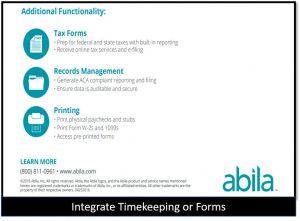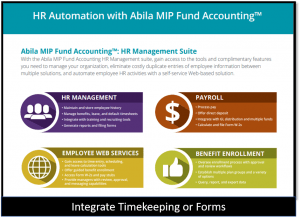
With the nationwide shutdown that began earlier this year, a lot of businesses suddenly found themselves operating in a completely different way than ever before: with all (or most) of their workers at home.
While the switch from an in-office experience to telecommuting can be quite the adjustment — check out our tips for acclimating to this different lifestyle — many companies are realizing that they get just as much accomplished with these remote teams. And that’s left a lot of business leaders wondering: Do we ever really need to return to the office?
If you’re considering making this temporary solution a permanent one, here are a few benefits to consider.
You’ll save money.
How much are you spending each month on office space? Now imagine what it would be like if you could instead invest that money back into your business, whether it be increased marketing efforts, equipment upgrades, or an expanded workforce that could then generate more revenue from a larger customer base.
Your workers are happier.
Of course, there is the possibility that some of your workers will begin to conflate work and personal life when first adjusting to the remote lifestyle. But, once they establish that distinct separation — which is something that you should actively encourage — many find that their lives are much more balanced and fulfilling. There’s no longer the stress that comes with both starting and finishing each day fighting with traffic. And with no daily commute, they have even more personal time to dedicate to whatever it is that makes them happy. And when your workers are happy …
Productivity increases.
Despite the stigma and the potential for distractions that abound at home, most employers see a boost in productivity from their at-home workers. Without a commute, you remove the chance that days may start late due to unforeseen traffic. While mingling with colleagues is an important and healthy aspect of maintaining company culture — and we do encourage remote workers to take the time to chat with each other — there’s less of a chance that too much socializing will occur. Oh, and let’s not forget: Workers tend not to get sick as frequently when not going into an office each day. Fewer missed workdays mean projects are less likely to fall behind schedule.
You can attract more talent.
When there isn’t a physical office to report to, that means (in many cases) you aren’t restricted to a local pool of talent. Instead, you can cast a wider net when hiring, giving you access to top-tier leaders you may not have been able to bring on board otherwise, since you won’t have to convince them to move. (You’ll also save yourself the expense of any stipend to cover those moving costs.)
You’ll experience less turnover.
People love flexibility. That’s one of the biggest appeals of remote work. People who can work from anywhere are far less likely to seek out employment elsewhere, in part because they enjoy the freedom of working from anywhere and they don’t want to give that up. As a business owner, that benefits you twofold. You’ll have a more seasoned team of dedicated workers that truly know your business inside and out. And you won’t have the compounding expense that comes with training quite as many replacement members.
What do you think? Is your company ready to make remote life a permanent solution?
Have any questions on how Actsoft can help you?
Share this post:
About the author : Joshua Pramis
Joshua Pramis is a writer and editor with an affinity for all things travel, tech, and food. His work has appeared on Travel + Leisure, Conde Nast Traveler, Digital Trends, and the Daily Meal, among other outlets. When he's not at home canoodling with his cats (which is typical), you'll find him running races, exploring new locales, and trying out different food venues in St Petersburg, Florida.

















 Encore & Geotab Drive
Encore & Geotab Drive



























 Gain even greater insight into the daily activities of your fleet using the combination of Geotab and Actsoft. Geotab devices provide detailed data collection and seamless integration with our solutions; learn more about the ways your vehicles are being used daily with the power of this tandem.
Gain even greater insight into the daily activities of your fleet using the combination of Geotab and Actsoft. Geotab devices provide detailed data collection and seamless integration with our solutions; learn more about the ways your vehicles are being used daily with the power of this tandem.



 Actsoft partnered with Odin to provide our solutions overseas, through payment processing integrations. Odin helps us support user management for our software; customers can also purchase our products through Odin’s billing platform.
Actsoft partnered with Odin to provide our solutions overseas, through payment processing integrations. Odin helps us support user management for our software; customers can also purchase our products through Odin’s billing platform.

 VisTracks powers our Electronic Logging Device (ELD) solution, which enables transportation businesses to easily automate their hours of service logs, remain in governmental compliance, and reduce their potential to incur costly fines.
VisTracks powers our Electronic Logging Device (ELD) solution, which enables transportation businesses to easily automate their hours of service logs, remain in governmental compliance, and reduce their potential to incur costly fines. Integration between Actsoft solutions and BeWhere’s software products is available. Take your team’s asset tracking, cellular data connectivity, and field insight a step further with effective, cross-application compatibility.
Integration between Actsoft solutions and BeWhere’s software products is available. Take your team’s asset tracking, cellular data connectivity, and field insight a step further with effective, cross-application compatibility.
 CalAmp tracking devices for vehicles and assets alike are compatible with Actsoft solutions, making it easy for you to efficiently monitor your equipment and fleet cars. Help your team enhance accountability, safety, and savings through a combination of easily installed hardware and intuitive software.
CalAmp tracking devices for vehicles and assets alike are compatible with Actsoft solutions, making it easy for you to efficiently monitor your equipment and fleet cars. Help your team enhance accountability, safety, and savings through a combination of easily installed hardware and intuitive software. Our partnership with Uniden is ideal for companies looking to gain advanced diagnostics on their fleets. Uniden’s extensive product listing of car electronics like radios, dash cams, radar detectors, and in-vehicle communicators work in concert with Actsoft’s solutions to better connect your vehicles to the company headquarters.
Our partnership with Uniden is ideal for companies looking to gain advanced diagnostics on their fleets. Uniden’s extensive product listing of car electronics like radios, dash cams, radar detectors, and in-vehicle communicators work in concert with Actsoft’s solutions to better connect your vehicles to the company headquarters. Kyocera offers a wide range of mobile devices, ranging in design from traditional phones to ultra-durable handset technology. Actsoft is able to equip organizations in a variety of different industries with solutions for improved business, while Kyocera supplies the technology they can flawlessly operate on.
Kyocera offers a wide range of mobile devices, ranging in design from traditional phones to ultra-durable handset technology. Actsoft is able to equip organizations in a variety of different industries with solutions for improved business, while Kyocera supplies the technology they can flawlessly operate on.

 Our software is the perfect complement to Apple’s user-friendly technology. Equip your workforce with the devices and solutions it needs for optimized productivity during daily operations with Apple and Actsoft.
Our software is the perfect complement to Apple’s user-friendly technology. Equip your workforce with the devices and solutions it needs for optimized productivity during daily operations with Apple and Actsoft.
 Actsoft and Sanyo teamed up to merge intuitive business management software with the technology of today. This partnership allows us to provide you with all the tools your team needs for improved workflows, better coordination, and optimized productivity.
Actsoft and Sanyo teamed up to merge intuitive business management software with the technology of today. This partnership allows us to provide you with all the tools your team needs for improved workflows, better coordination, and optimized productivity. Motorola’s mobile technology works in tandem with our solutions to provide extra versatility to your business practices. Coupled with our software’s features, Motorola’s reliable devices make connecting your workforce simpler than ever to do.
Motorola’s mobile technology works in tandem with our solutions to provide extra versatility to your business practices. Coupled with our software’s features, Motorola’s reliable devices make connecting your workforce simpler than ever to do. We’re able to bundle certain solutions of ours (including our Electronic Visit Verification options) with Samsung devices to help your team achieve as much functionality as possible, while keeping rates affordable. Use these combinations for accurate recordkeeping, improved communication, and smarter data collection in the field.
We’re able to bundle certain solutions of ours (including our Electronic Visit Verification options) with Samsung devices to help your team achieve as much functionality as possible, while keeping rates affordable. Use these combinations for accurate recordkeeping, improved communication, and smarter data collection in the field.